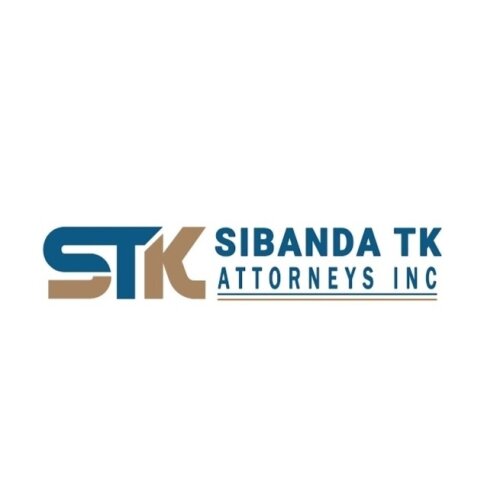Best Mortgage Lawyers in Kwamhlanga
Share your needs with us, get contacted by law firms.
Free. Takes 2 min.
Free Guide to Hiring a Real Estate Lawyer
List of the best lawyers in Kwamhlanga, South Africa
About Mortgage Law in Kwamhlanga, South Africa
A mortgage is a legally binding agreement where property or real estate is used as security for a loan. In Kwamhlanga, South Africa, obtaining a mortgage often means using a home or plot of land as collateral to secure a loan from a bank or financial institution. If the borrower defaults on the loan, the lender can take ownership of the property through foreclosure. Mortgage law in Kwamhlanga is primarily governed under national legislation such as the National Credit Act and the Deeds Registries Act, but local factors, such as customary ownership or municipal regulations, can play a role.
Why You May Need a Lawyer
There are several situations when seeking legal advice in matters of mortgage is important:
- Understanding the terms and legal implications of a mortgage contract before signing.
- Assisting with disputes regarding property boundaries, title deeds, or ownership.
- Negotiating with lenders on mortgage terms, restructuring, or settlements.
- Dealing with threats of foreclosure or repossession due to missed payments.
- Assisting first-time buyers in navigating complex legal requirements and paperwork.
- Resolving issues related to the transfer of property after a death, divorce, or inheritance.
- Help in identifying predatory lending practices or unfair contract clauses.
Local Laws Overview
In Kwamhlanga, as in the rest of South Africa, property ownership and mortgages are closely linked with statutory and customary law. Here are several key points about local regulations:
- National Credit Act (NCA): Governs loans and credit agreements, ensuring fair lending practices and protecting consumer rights.
- Deeds Registries Act: Requires that all property transfers and mortgages be registered at the Deeds Office, providing an official record of ownership and encumbrances.
- Foreclosure Procedure: Lenders must follow strict legal procedures before repossessing property, including court application and proof of breach.
- Customary Land: Some properties in Kwamhlanga may fall under customary ownership, which can complicate mortgage eligibility or processes due to communal land rights.
- Municipal Regulations: Local by-laws may affect zoning, land use, permits, and rates, impacting the value and use of mortgaged property.
- Bond Registration Costs: Buyers must budget for legal fees, transfer duty, and registration costs as part of the mortgage process.
Frequently Asked Questions
What is the difference between a mortgage bond and a home loan?
A home loan is the money you borrow to purchase a property, while a mortgage bond is the legal agreement registering the property as security for that loan at the Deeds Office.
Can I get a mortgage on customary or communal land in Kwamhlanga?
It can be difficult to obtain a mortgage on communal or customary land, as banks generally require individual title deeds to use the property as collateral. Legal advice is necessary to explore available options.
What happens if I miss mortgage payments?
If you miss payments, your lender may begin legal proceedings to repossess the property. However, they must follow fair processes outlined in the National Credit Act, and you may have an opportunity to make payment arrangements or negotiate.
How do I know if a lender is legitimate?
Use only registered banks or financial institutions. The National Credit Regulator (NCR) can verify if a lender is accredited and compliant with national laws.
What are the costs involved in obtaining a mortgage?
Costs include legal fees, bond registration fees, transfer duty, bank initiation fees, and sometimes valuation costs. Request a detailed breakdown from your lender or attorney.
Can foreigners apply for mortgages in Kwamhlanga?
Foreign nationals may apply for a mortgage, but conditions can be stricter and may include a larger deposit requirement. Special rules may apply regarding land ownership for non-citizens.
Is a lawyer required when signing a mortgage agreement?
While not strictly required by law, it is strongly advised to have a lawyer review the mortgage agreement to explain terms and ensure your interests are protected.
What are my rights if the property has hidden defects?
Sellers are legally obligated to disclose known defects. If defects were concealed, you may have grounds for legal recourse, especially if your mortgage was based on misrepresented property value.
How long does the mortgage process take?
Mortgage approval and property transfer can take between 6 and 12 weeks, depending on bank processes, property searches, and Deeds Office turnaround times.
What is foreclosure and how is it handled?
Foreclosure is the process where a lender takes legal action to repossess and sell your property to recover debt. This is a last resort, and the process is governed by court procedures to protect your rights.
Additional Resources
Here are helpful resources and organizations for mortgage-related matters in Kwamhlanga:
- South African National Credit Regulator (NCR): Oversees credit providers and protects consumer rights.
- Deeds Office (Department of Agriculture, Land Reform and Rural Development): Maintains records of property ownership and mortgage bonds.
- South African Human Rights Commission: Assists with complaints about unfair treatment or discrimination in property matters.
- Local municipality offices: Provide information on zoning, land use, and rates.
- Law Society of South Africa: Directory of legal professionals specializing in property and mortgage law.
- Legal Aid South Africa: Offers free or affordable legal assistance to qualifying individuals.
Next Steps
If you are considering a mortgage in Kwamhlanga or facing challenges with your current mortgage, consider the following steps:
- Gather all relevant documents, including your ID, proof of income, property title or deed, and any existing contracts related to the property.
- Contact a qualified property attorney or conveyancer in your area for a consultation.
- If you have already chosen a lender, request all offer and agreement documents in writing for legal review before signing.
- Consult with your local Deeds Office or municipality if there are questions about property registration or zoning.
- In financial distress, approach your lender early to discuss restructuring or payment arrangements, and seek legal advice promptly to protect your rights.
- Keep records and communications with all parties involved in your mortgage process.
Lawzana helps you find the best lawyers and law firms in Kwamhlanga through a curated and pre-screened list of qualified legal professionals. Our platform offers rankings and detailed profiles of attorneys and law firms, allowing you to compare based on practice areas, including Mortgage, experience, and client feedback.
Each profile includes a description of the firm's areas of practice, client reviews, team members and partners, year of establishment, spoken languages, office locations, contact information, social media presence, and any published articles or resources. Most firms on our platform speak English and are experienced in both local and international legal matters.
Get a quote from top-rated law firms in Kwamhlanga, South Africa — quickly, securely, and without unnecessary hassle.
Disclaimer:
The information provided on this page is for general informational purposes only and does not constitute legal advice. While we strive to ensure the accuracy and relevance of the content, legal information may change over time, and interpretations of the law can vary. You should always consult with a qualified legal professional for advice specific to your situation.
We disclaim all liability for actions taken or not taken based on the content of this page. If you believe any information is incorrect or outdated, please contact us, and we will review and update it where appropriate.









